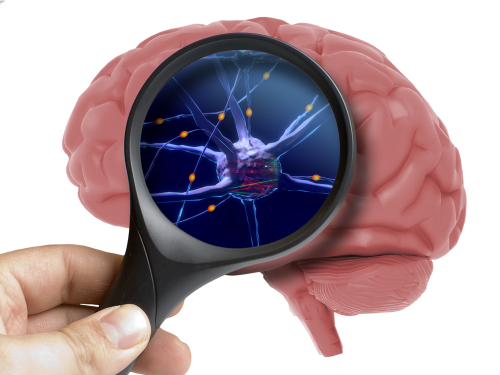Cocaine Psychosis: Symptoms, Causes, & Treatment
If you or someone you know is abusing cocaine and noticing signs of paranoia, hallucinations, or delusions, it might be cocaine psychosis. Most people abusing cocaine aren’t aware of this potential side effect, and those who do may notice it too late.
As an addiction center that treats every aspect of substance abuse, we wrote this article to explain what cocaine psychosis is, its symptoms, its causes, and if it can be treated. Once you finish this blog, you’ll have the tools and research you need to make informed and healthy decisions before and after using cocaine.

What Is Cocaine Psychosis?
Cocaine psychosis, also called cocaine-induced psychosis, is a spectrum of psychiatric symptoms caused by chronic cocaine abuse, including extreme paranoia, auditory, visual, and tactile hallucinations, violence and aggressive behavior, and delusions. These symptoms can be caused or worsened by chronic cocaine use, especially if someone has a pre-existing mental health disorder, such as schizophrenia, schizoaffective disorder, or postpartum psychosis. Cocaine psychosis can also lead to mood, sleep, and anxiety disorders and sexual dysfunction.
Up to 53% of cocaine users experience psychotic symptoms, which is typically found in individuals with cocaine dependence since the psychological and physical cravings contribute to ongoing cocaine abuse. Reports have also found that crack cocaine (rock form) induces stronger and more frequent symptoms of psychosis than cocaine’s powder form (cocaine hydrochloride) because of its quick delivery to the brain.
Additionally, chronic cocaine use can eventually lead to “kindling” or “sensitization,” a phenomenon where lower doses of cocaine induce the same or stronger symptoms of psychosis. Unfortunately, as classified by the Diagnostic and Statistical Manual of Mental Disorders, most individuals with cocaine dependence continue to abuse it despite knowing side effects and long-term physical changes, including weight loss, anemia, and seizures.
Read more: How Many Teens Use Cocaine? Stats, Sources, & Effects

Symptoms Of Cocaine-Induced Psychosis
The most common symptoms of cocaine-induced psychosis include paranoia, hallucinations, aggressive behavior, and delusions.
- Paranoia: When snorted, injected, or smoked, cocaine releases norepinephrine, a neurotransmitter responsible for regulating fight-or-flight behavior. Paranoia is one of the most common side effects of using cocaine, with up to 84% of users feeling anxious or suspicious of their surroundings after consumption. This paranoia can last hours to days, and many users require frequent hospitalization to calm erratic or dangerous behavior as a result.
- Hallucinations: 96% of individuals with cocaine-induced psychosis reported experiencing auditory (sounds), visual, and tactile (touch) hallucinations. This is a huge jump from a 1978 study that reported only 18% of cocaine users experiencing hallucinations. These false perceptions can lead to dangerous behavior toward the user and those around them.
- Aggression: 55% of individuals with cocaine-induced psychiatric symptoms had violent or aggressive behavior. The same study found that 46% of these individuals committed a violent crime to get cocaine, and 26% of users were high on cocaine or crack while committing a crime, with almost all of them being violent. Crack cocaine was also found to produce greater amounts of anger and violence compared to snorting powder cocaine.
- Delusions: Cocaine’s effects on dopamine, norepinephrine, and serotonin levels can lead to severe and fluctuating confusion, blood pressure changes, pulse changes, and sweating. This can lead to delusions, feelings, or beliefs not based on reality. For example, someone experiencing delusions while high on cocaine might believe they’re stronger than actuality and attempt to climb something or jump from somewhere dangerous.
Read more: How Does Cocaine Affect The Nervous System?

What Causes Cocaine Psychosis?
Cocaine psychosis is usually caused by cocaine’s effect on important neurotransmitters, mainly dopamine. When cocaine is taken, it binds to the brain’s dopamine transporters and blocks the removal of dopamine from the synapse, which normally recycles it for further use. Dopamine will then build up and produce an amplified signal to any receiving neurons, creating a “high.” However, excessive dopamine levels have been linked with paranoia, anger, aggressiveness, and psychotic symptoms.
Cocaine’s effect on norepinephrine and serotonin levels is also a root cause of psychosis. Norepinephrine regulates alertness, heart rate, and blood pressure and prepares the body for fight-or-flight responses, while serotonin helps regulate mood, appetite, and sleep patterns. However, repeated cocaine use depletes the body’s ability to create these neurotransmitters on its own, leading to irritability, insomnia, loss of appetite, and psychosis. For example, if someone is binging cocaine, they might be unable to sleep, and their mood can become unstable or extremely agitated the longer they’re awake.
Studies have found that because men produce more dopamine than women, they’re more likely to develop psychosis after using substances that affects dopamine levels. This applies to cannabis, amphetamines, alcohol, nicotine, and opioids.
Can Cocaine Psychosis Be Treated?
Cocaine psychosis needs to be treated in two parts: medical stabilization for symptoms of psychosis and addiction treatment for cocaine dependence.
- Medical stabilization: Psychosis can be treated using antidepressants to stabilize paranoia, anxiety, and delusions, while anticonvulsants can help with seizures, tremors, or other symptoms that arise during cocaine withdrawal. If someone is displaying violent behavior, they might require temporary mental health stabilization at a hospital or other inpatient facility.
- Cocaine addiction treatment: The reasons and actions that led someone to abuse cocaine can linger long after symptoms of psychosis have been treated. An addiction treatment center can help an individual understand their drug use, such as how it affects their health, family, and friends. This is also the perfect opportunity to address any underlying co-occurring mental health disorders that contribute to substance use. For example, some people might use cocaine to boost their mood, motivation, or focus, not realizing they may have depression, ADHD, or bipolar disorder.
Cocaine Addiction Treatment In Louisville, KY
If you or someone you know is experiencing cocaine psychosis, contact Louisville Recovery Center. Our addiction treatment staff is highly trained in helping individuals suffering from substance-induced psychotic symptoms. We’re proud of our treatment methods, implementing holistic healing modalities like equine therapy and breathwork with evidence-based therapy methods that treat the mind, body, and soul of every client who walks through our doors. Call today, and one of our admissions agents can help you get started and answer questions.







